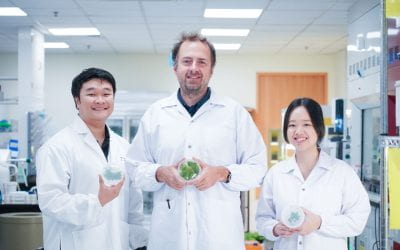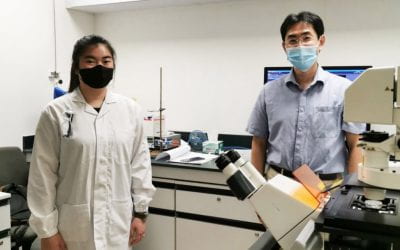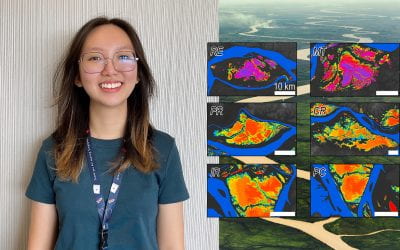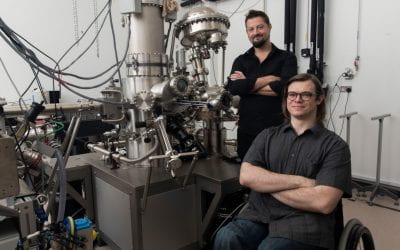Spintronics is the idea of encoding and processing information in the spins of electrons, rather than in their electrical charges. Currently, such devices only work at ultralow cryogenic temperatures, and for this reason, researchers have long hoped to develop...
Discovery poised to help detect dark matter and pave the way to unravel the universe’s secrets
Zig-zag light Light waves emanating from a lamp travel uniformly in all directions. When such waves strike an object, such as a mirror, light reflects. When traveling from air to water, light refracts. These familiar facts form the foundation for how light travels and...
Estimating Uncertainty in Neural Networks
Physicists know that no measurement is meaningful without an estimate of its error. Keane studied how to estimate the uncertainty in neural network predictions. As part of his final year project at the School of Physical and Mathematical Sciences (SPMS), Keane...
Tracing Waves Through Plasma: Beam Tracing for Stellarators
As part of his final year project at the School of Physical and Mathematical Sciences (SPMS), Eduard Wikarta (Year 4, PHMS) delved into the complex world of plasma physics and computational diagnostics. His project focused on simulating how microwave beams...
Pushing the Frontiers of Quantum Decomposition
Fourth-year students at the School of Physical and Mathematical Sciences (SPMS), Nanyang Technological University, have the opportunity to embark on Final Year Projects (FYPs) that challenge their understanding of scientific concepts while encouraging them to...
CoS Challenge 2025
Modelled after the UK's University Challenge and held in February, the 2025 edition of the CoS Challenge saw teams from each of the College’s four Schools competing to win SGD1,000 worth of shopping vouchers and the title of “Best Team.” Teams had to answer a series...
Surviving the Elements: A New Understanding of Plant Stress Responses
A team of scientists from the NTU School of Biological Sciences have carried out research into how plants react to stressful conditions and devised a computational method that allows scientists to predict how plants will respond to complex environmental stresses. Their paper discussing their research and new computational method was recently accepted into the prestigious scientific journal, Nature Communications.
A Peek at the MSc in Chemical Sciences and Instrumentation Programme
The newly-launched Master of Science in Chemical Sciences and Instrumentation programme covers advanced chemistry concepts, instruments, data science, and technopreneurship. We interview a professor and a student in the programme to learn more about it.
URECA Research Excellence Award to Ang Wei Jing for mapping Amazon River floodplains
A URECA study with Asst Prof Edward Park at NIE gave ASE student Ang Wei Jing the opportunity to study the world’s largest river, the Amazon. With her project “Remote Sensing of Rivers” she won the URECA Research Excellence Award, and now she is publishing her results in a top journal.
Electrons on the Edge: Atomically Thin Quantum Spin Hall Materials
Atomically thin materials known as quantum spin Hall insulators have unusual properties that can be used to create error-resistant quantum computers. Nanyang Assistant Professor Bent Weber and Dr Michael Lodge survey the development of this exciting research field.









